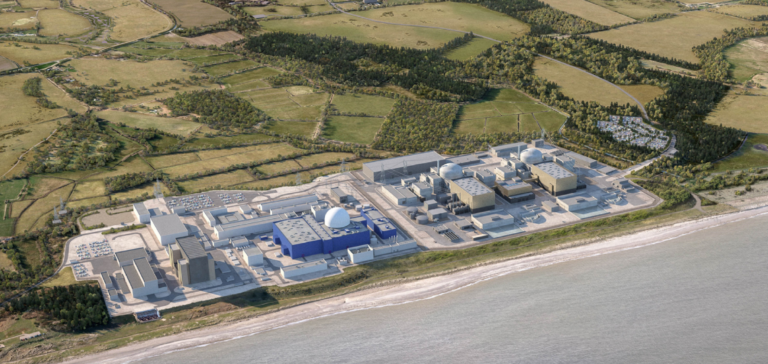Seawater desalination is a crucial step in meeting the region’s drinking water needs. This sophisticated process removes salt and other minerals from seawater, making it suitable for human and industrial consumption. Setting up a temporary desalination plant is a pragmatic response to the need to ensure a continuous supply of water while a permanent water pipeline is being built.
Zero Carbon Electricity Supply
An essential element of this project is the supply of zero-carbon-emission electricity. Sizewell C is working closely with EDF Energy Nuclear Generation Limited to secure a clean source of electricity from the nearby Sizewell B nuclear power station. This initiative will significantly reduce reliance on electricity from the traditional grid or generators, while helping to minimize the carbon emissions associated with construction.
Desalination plant production capacity
The temporary desalination plant will operate continuously, and its production capacity is remarkable. It could produce up to 4,000 cubic metres of drinking water per day, which is a considerable quantity. However, it is important to note that actual production will generally be lower than this maximum capacity, being adjusted according to construction demand.
Water Main for Permanent Supply
The project goes beyond a temporary desalination plant. It also includes the construction of a water main to provide the plant with a permanent source of water. This new source of surplus water supply will also benefit other users in the local community, strengthening the resilience of the region’s water supply.
Sizewell C has drawn up an ambitious plan for the region’s energy future. With two EPR reactors producing 3.2 GW of electricity, the plant will be able to supply power to the equivalent of around six million homes. The project is largely inspired by the Hinkley Point C plant currently under construction in Somerset. EDF Energy has obtained the consent order for this project, marking a crucial step towards a more sustainable energy future.
In short, the desalination project is an intelligent response to the region’s water needs. With a focus on sustainability, zero-carbon power generation and preparation for a promising energy future, Sizewell C Company is committed to reducing environmental impacts while ensuring a quality water supply.






















